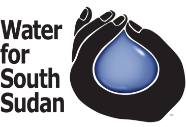First Quarter of Our Project with UNICEF Is Complete
We are thrilled to share that we have officially completed the first quarter of our project that we’ve been working on in partnership with UNICEF. So far we have rehabilitated six boreholes (wells) on school grounds; trained 105 committee members on best practices to care for community water sources and hygiene education promotion; trained 59 community members on operation and maintenance of local water wells; constructed four new school latrines with separate facilities for boys and girls—to provide comfort and privacy to empower young women to attend school; and rehabilitated 10 school latrines.
A key point of this project is to make school more easily accessible for children, especially girls. Girls normally do not have access to resources to maintain menstrual hygiene, therefore they usually miss school during their cycles. As part of this project, WFSS has been able to provide over 4,000 “dignity kits” which include reusable pads, bars of soap, underwear, etc. Not only are we providing physical resources, we are sending hygiene promotion messages to enlighten young women, reassuring girls that menstruation is normal, which is not the message they are used to hearing.
With these resources and a private latrine, girls feel more confident attending school. Oftentimes, girls wouldn’t attend school because they felt shameful, “boys would laugh at me, now I don’t have a problem going to school” says a girl who has benefitted from these resources. The communities in which these projects are taking place have seen a huge increase in school attendance.
Furthermore, this project focuses on promoting sustainability within communities. Community members will be trained until the end of the project as pump mechanics so communities can take steps to become self-reliant by having the knowledge to take care of the wells and each other.
The first portion of the project is complete, resulting in 4,275 people gaining access to clean, safe drinking water. “With this partnership we have with UNICEF, it will expose us a lot as a local NGO in South Sudan. I think we’re headed in the right direction. We are taking a leap, taking a different direction, and people are asking, ‘who is this WFSS making strides in the water sector?’ Key WASH partners in the country now have WFSS on the forefront,” says Simon Riek, WFSS program manager in South Sudan.
Stay tuned for more updates on our project with UNICEF!



